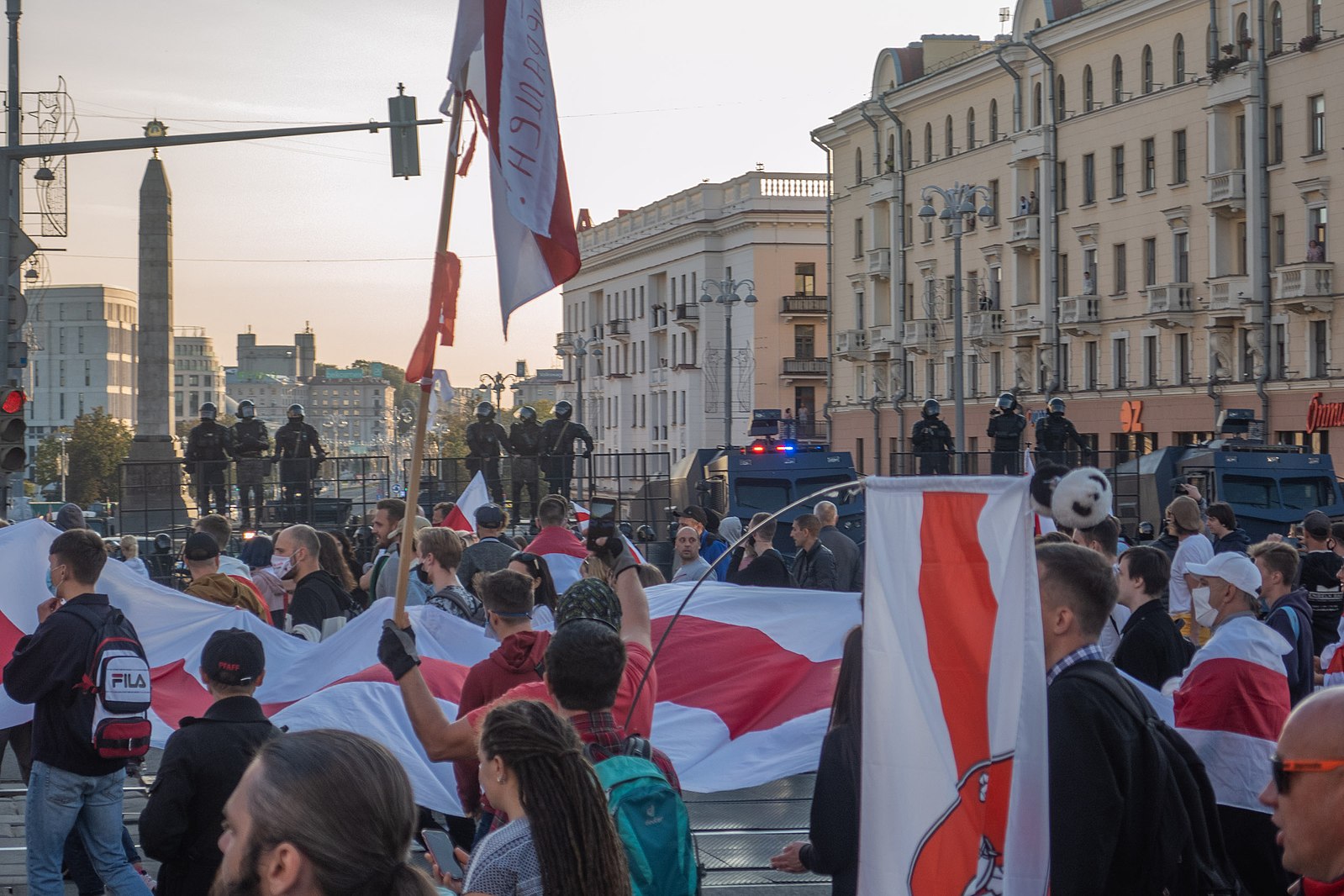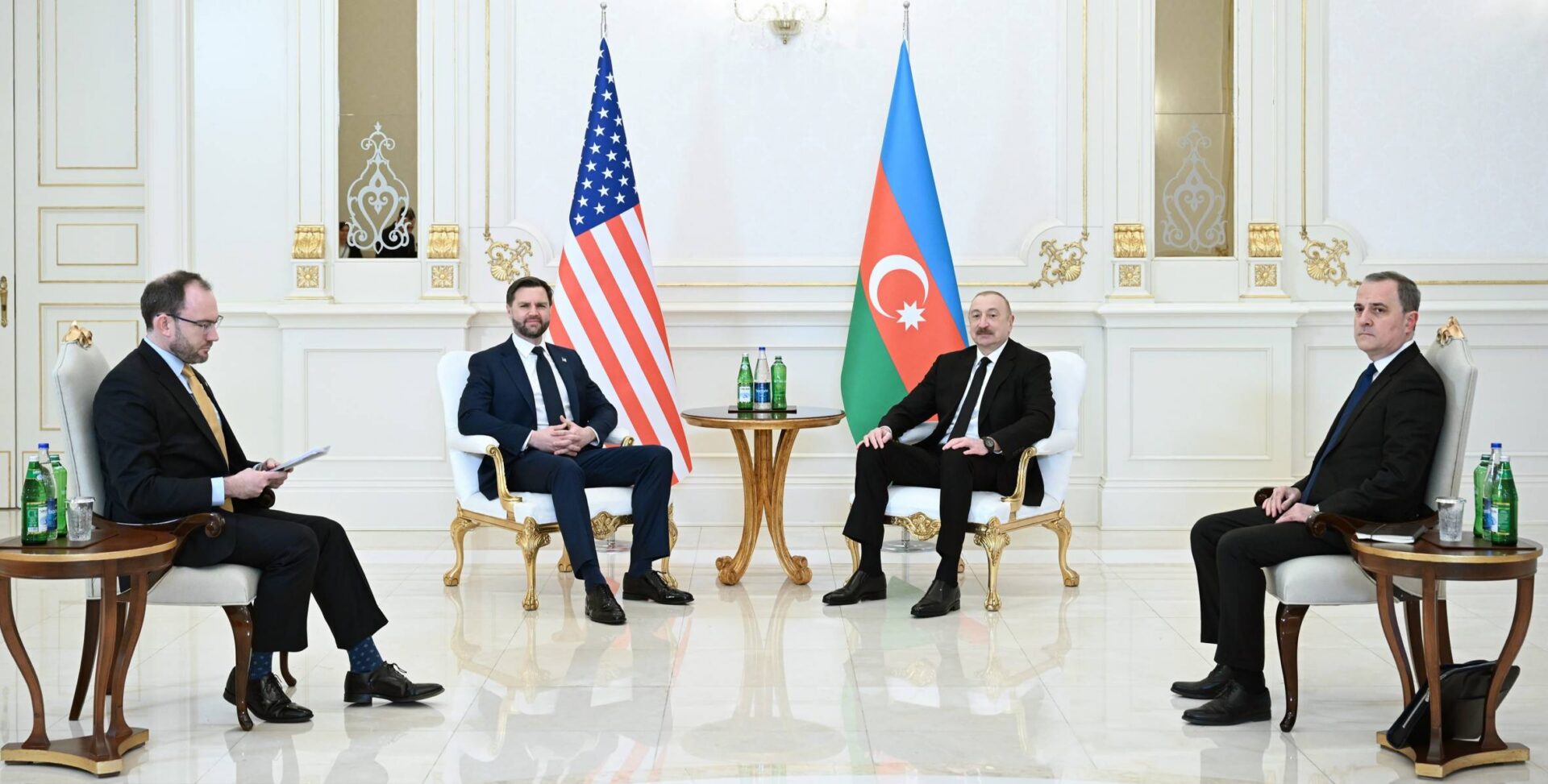
Radical Sanctions on Belarus Will Not Push Minsk Into Moscow’s Arms, Russian Experts Argue
Radical Sanctions on Belarus Will Not Push Minsk Into Moscow’s Arms, Russian Experts Argue
Angered by Alyaksandr Lukashenka’s repressive moves and desirous of being on the right side of history, Western governments have imposed increasingly tough sanctions on Belarus (see EDM, May 18, June 30, August 10). But to a remarkable degree, they have restrained from taking even harsher actions because of fears that such moves would drive Belarus further into the arms of the Kremlin (see EDM, September 8; Biznes Alert, June 21; Euro Intelligence, May 29; RFE/RL, June 26). Those concerns are misplaced, Russian economist Vladislav Inozemtsev says, because of how Belarusians feel about Moscow and because of Russia’s implicit worries about what actually setting up a supranational union state with Belarus could lead to.
According to Inozemtsev, the West has not yet decided exactly what it hopes to achieve in Belarus. Moreover, the sanctions it is now imposing will be insufficient to produce economic or political collapse, a significant improvement in the behavior of the Lukashenka regime, or the kind of political uprising needed to cause regime change, which would need to be larger than what had taken place in the last year, when electoral fraud drove tens of thousands of Belarusians into the streets. Unfortunately, Inozemtsev says, “Western countries want an improvement in the Lukashenka regime, something that, in fact, is impossible.” The sanctions announced so far will not lead to this improvement, because the situation is presently quite different from the one in 2010, when that approach appeared for a time to work (Thinktanks.by, September 21).
Europe and the United States could destroy the Belarusian economy “if they want to,” Inozemtsev argues, given the many sectors and individuals in Belarus still vulnerable to greater sanctions pressure. Consequently, discussions in the West should focus on whether it is prepared to take “very radical” steps to achieve the destruction of the current Belarusian economy and the political system on which it is based. The West must be clear and explicit about what it wants and intends, however.
For now, Inozemtsev suggests, the West does not appear prepared to take steps that would lead to those outcomes. Instead, it is simply adopting punitive restrictions that depress the economy. But as the experience of Russia shows, authoritarian regimes can tolerate zero or even negative growth for long periods of time. Indeed, they may use such relatively limited sanctions to lessen opposition at home by redirecting popular anger at outside groups. That is a factor the West has yet to properly consider while designing its policies.
A major reason Western countries have not imposed tougher sanctions or recognized this reality is that, in the West, many believe taking such steps would have the effect of driving Belarus into the arms of Moscow, Inozemtsev asserts. But that risk is overstated. Lukashenka himself could decide that he has no choice but to agree to Russian terms if faced with regime-destroying sanctions, Inozemtsev states. But Lukashenka is not Belarus, and the Belarusian people do not want to become part of Russia. In any case, for such an action to occur, the Belarusian constitution requires a referendum, and such a referendum would, at a minimum, be politically explosive, with those opposed to joining Russia gaining a new opportunity to voice their objections. Indeed, regardless how Minsk and Moscow intend to manage it, such a vote would likely yield the same kind of outcome as that of last year’s disputed presidential election.
The Kremlin, for all its bombast about wanting to move ahead with implementing the Union State Treaty with Belarus, arguably does not actually want the problems that the de jure and de facto fusion of the two countries would produce. Russian President Vladimir Putin may have previously thought that absorbing Belarus would give him another triumph like the Crimean annexation in 2014. But cooler heads in Moscow are now advising against such hopes. One of the most outspoken is Russian commentator Ilya Grashchenkov, who argues that uniting the two countries would create a situation resembling that of Northern Ireland within the United Kingdom (Rosbalt, August 25). Were Moscow and Minsk to impose such a unity, opposing Belarusians would become a bigger problem for Moscow within Russia than they are outside (see EDM, September 10, 2020). Consequently, as Inozemtsev suggests, while Putin continues to pursue unity, he may ultimately refrain from taking the last step (Thinktanks.by, September 21, 2021).
Grashchenkov points out that there are many ways in which a people under occupation—as Belarusians would certainly feel themselves to be in such a situation—can create difficulties for the regime, ranging from passive resistance to open violence. No one in Moscow should be under any illusions that one or both of these things would not happen in a true union state. But if the Kremlin does fail to recognize this reality and goes ahead with full integration or even annexation, it will have acquired a new, dangerous and potentially explosive domestic challenge that will be extremely difficult for the Russian regime to control or contain. At the same time, these new challenges will end up exacerbating the foreign policy problems for Russia that Belarus has already created.
Any Belarusian resistance to Russian rule will only intensify the increasingly widespread view in the West that Putin is an imperialist. Anyone who doubts that should read the history of Northern Ireland; that historical analogy may come to resemble Russia’s future, Grashechenkov says, if the Kremlin leader does not refrain from taking the last step on integrating Belarus (Rosbalt, August 25). The combination of Belarusian opposition to the Union State and Moscow’s increasing recognition of the problems such a merger would create for Russia are yet another reason for the West to take more draconian measures against Minsk, according to Inozemtsev. Western fears about pushing sanctions too far are misplaced, and a tougher line is more likely to achieve Western goals than the strategy now in place, he concludes (Thinktanks.by, September 21).


